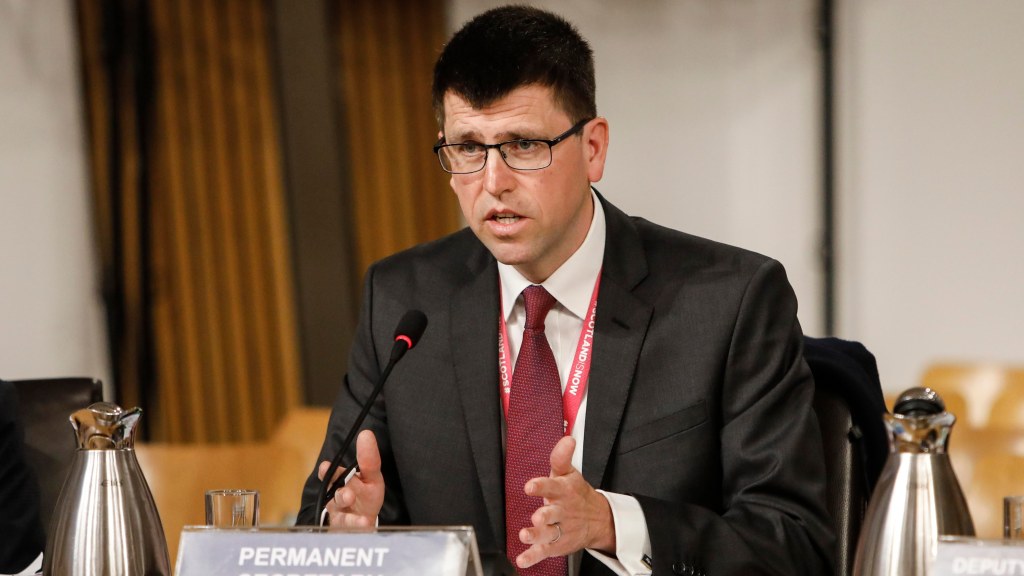Britain Must Attract the World’s Brightest Talent
After years of losing ground to tech hubs like Silicon Valley and Shenzhen, Europe’s technology sector is undergoing a revival. A wave of momentum is emerging.
The European Commission’s innovative agenda, alongside the vibrant atmosphere at VivaTech in Paris, signals a shift from complacency to a robust sense of determination. Paris is now a hub of policy ambition, fresh investment, and a clear intent to take the lead. The European Union’s proposed “28th regime,” a unified framework designed to simplify the scaling process for companies, has the potential to facilitate smoother cross-border expansion.
The UK finds itself at a pivotal juncture. This influx of momentum should act as a wake-up call for the nation. Instead of merely observing, the UK must take initiative—choosing collaboration over isolation. A sovereign yet cooperative technology strategy that prioritizes talent, investment, and growth is crucial for maintaining a competitive edge.
This urgency was palpable at London Tech Week, where Sir Keir Starmer shared the stage with Nvidia founder Jensen Huang. Their appearance underscored both political will and global confidence in the UK’s technological potential. Huang referred to AI as “the great equaliser” and emphasized Britain’s capabilities in research, talent, and innovation. While he acknowledged Europe’s deficiencies in computer infrastructure, the Chancellor confirmed a £1 billion investment in a UK supercomputer, reinforcing the message that the UK is significant.
Indeed, Britain’s technology sector is currently valued at $1.2 trillion. Start-ups secured over $7 billion in investments during the first half of 2025. The AI ecosystem continues to expand, and there is a noticeable convergence between government ambitions and the drive of founders.
Rachel Reeves’s recent financial review emphasized this commitment, allocating £11 billion for defense, along with substantial investments in health, digital skills, and transformation. This sentiment resonated at the Founders Forum Global event held the previous week, where innovators in defense, such as Helsing and Quantum Systems, proposed ambitious visions for the future. As global tensions escalate in regions like Ukraine, Israel, and Iran, the synergy of capital, talent, and government support in defense technology is not only timely but also essential.
Healthcare represents another promising area, with the government pledging £10 billion towards NHS digital transformation, converting aspirations into actions. During the past week, global leaders including Toyin Ajayi of Cityblock, Marius Nacht of aMoon, and Noubar Afeyan, co-founder of Moderna, spoke compellingly about AI’s potential to revolutionize drug discovery and patient care. The future of healthcare is poised to be quicker, more personalized, and guided by entrepreneurs who grasp both scientific and systemic nuances.
What stood out most in recent discussions was the newfound optimism among founders. International entrepreneurs previously hesitant to establish themselves in the UK are now perceiving renewed opportunities.
However, this momentum is delicate. Concerns surrounding tax policies, particularly regarding the termination of the non-dom regime, have resulted in apprehension among founders. There is cautious optimism that the government recognizes the dangers of talent exodus and is preparing innovative strategies to attract future creators and investors. The timing is critical, especially as the US appears set to introduce more competitive incentives for talent and capital.
A significant opportunity lies in reforming the UK’s enterprise management incentive (EMI) system, which allows cash-strapped start-ups to offer tax-efficient equity stakes. Today’s start-ups are expanding rapidly and securing larger investments; consequently, the EMI must adapt to reflect their aspirations, as current thresholds may hinder potential. An updated EMI framework would better reward early-stage teams taking risks and help the UK attract top talent.
Improvements in the listing environment are also necessary. The recent decision by UK-based fintech giant Wise to relocate its primary listing abroad serves as a stark reminder of how high-growth companies are questioning whether the UK aligns with their global ambitions.
Nonetheless, there are signs of progress. The Mansion House reforms and the introduction of Pisces, the world’s first regulated intermittent share-trading system, are promising developments. Pisces enables qualified investors to trade private company shares without a full stock market listing, unlocking new avenues of capital. These reforms can support entrepreneurs and early employees, providing liquidity and fostering a culture of serial entrepreneurship.
Kudos to Science Secretary Peter Kyle for advocating bold AI initiatives, such as hiring 1,000 technologists in Shoreditch and safeguarding research and development budgets. These are clear demonstrations of political intent. However, founders, both based in the UK and abroad, need to see a unified sense of urgency throughout the entire government. Alignment and attentiveness across the system are essential.
Recently, we convened some of the brightest minds in technology: Eric Schmidt, the former CEO of Google; Palantir co-founder Joe Lonsdale; Daniel Ek, co-founder of Spotify; Sir Demis Hassabis of DeepMind; along with founders of Perplexity, Anduril, Mistral, BYD, Trip.com, Palo Alto Networks, Arm, Netflix, and Prosus. While their discussions were ambitious, they were firmly grounded in realism. Building globally competitive technology requires time, resilience, and the willingness to challenge conventional thinking.
At the core of this enthusiasm is the belief that we may be on the brink of a new era of abundance. Breakthroughs in AI, energy, and longevity are progressing beyond theory. Companies like Proxima Fusion, Commonwealth Fusion Systems, and First Light are working towards making clean, near-limitless energy a reality—a shift that could revolutionize productivity and growth across all industries.
Platforms such as Lovable are lowering barriers to entrepreneurship, enabling individuals from various technical backgrounds to create and scale businesses. The infrastructure necessary for launching world-class ventures is becoming significantly more accessible.
However, as the pace increases, so too do the challenges. The global competition for talent is intensifying. The UK must continue to be an attractive destination for the world’s top minds. To take the lead, decisive action is essential. This includes expanding and simplifying visa processes, minimizing obstacles for international founders, incentivizing early teams appropriately, and committing to long-term policy consistency. Even more ambitious proposals, like exempting international entrepreneurs from wealth tax on foreign assets, could be pivotal. These adjustments are not merely economic fine-tuning; they represent strategic investments in a crucial global contest.
If the UK can capitalize on this moment by aligning the energy of founders with governmental resolve, we can not only revitalize our own tech ecosystem but also guide Europe into a promising future of abundance.
Brent Hoberman is the executive chairman and co-founder of Founders Forum Group, Founders Factory, and Firstminute Capital.




Post Comment